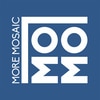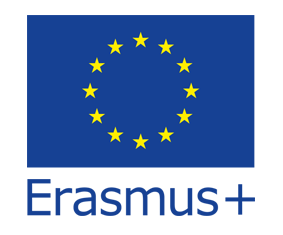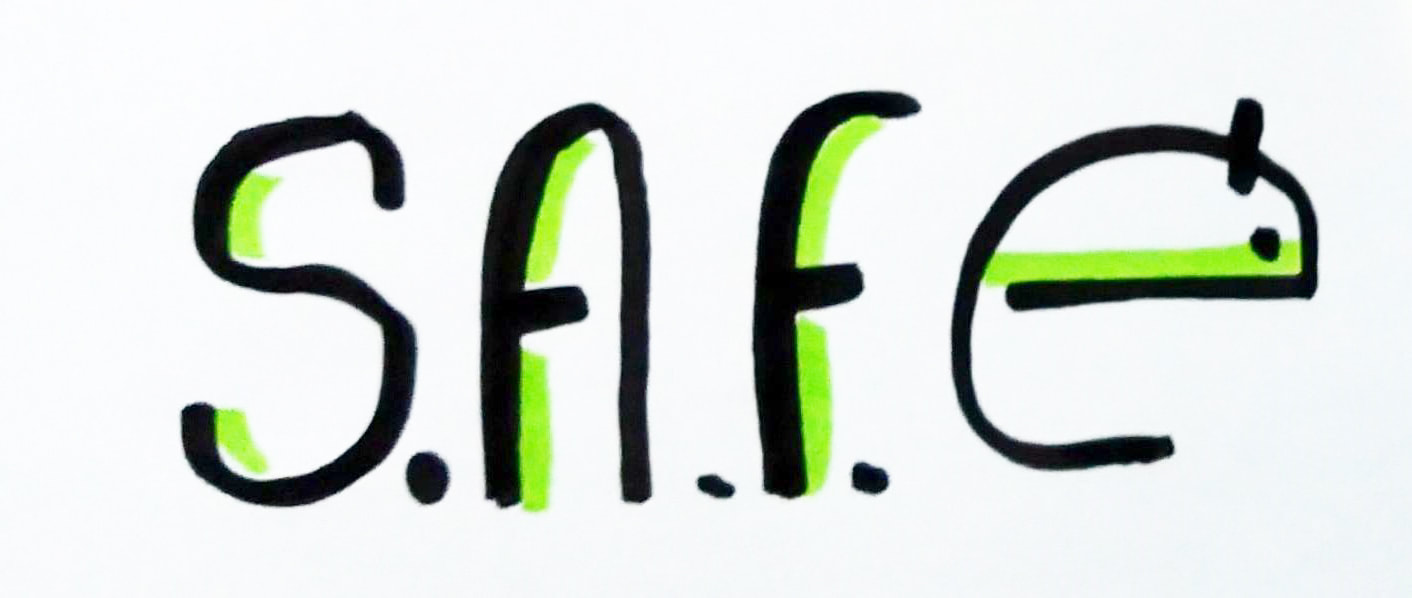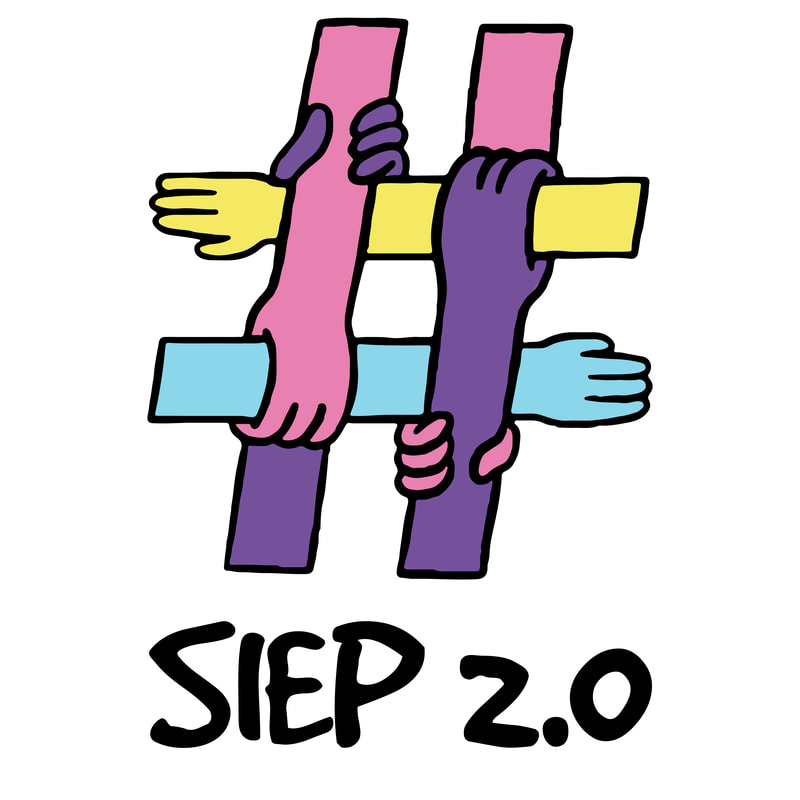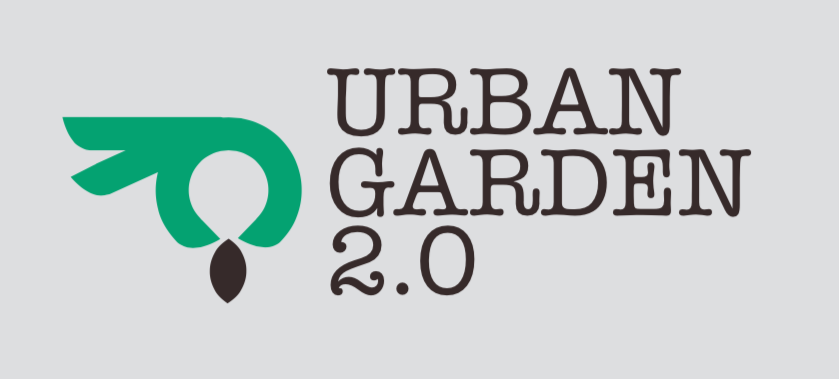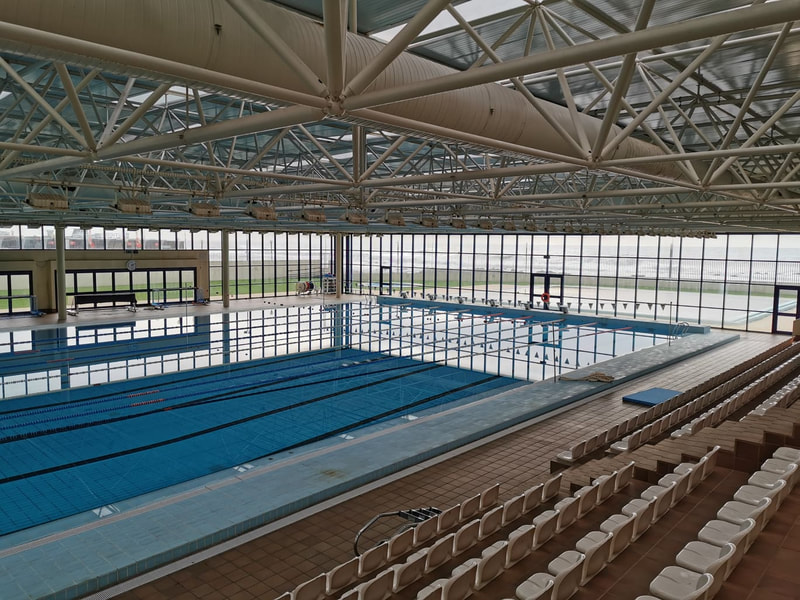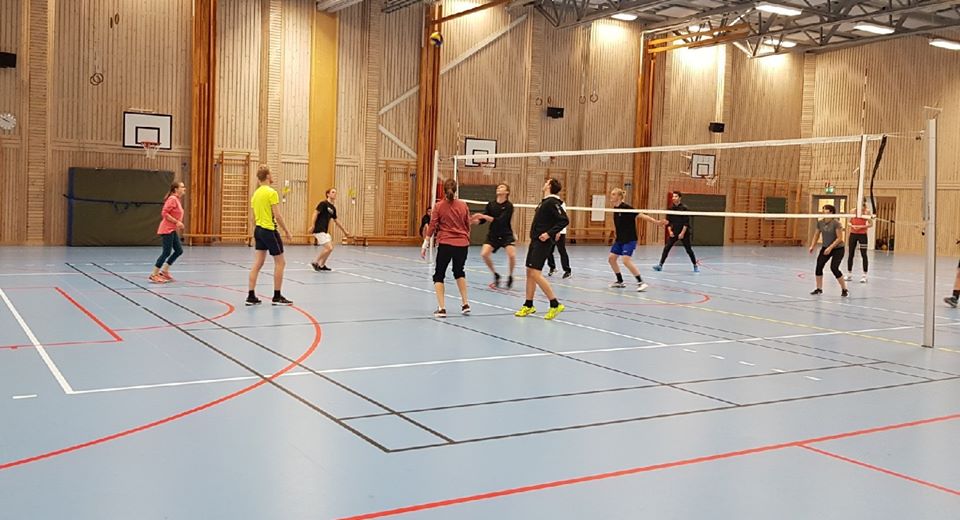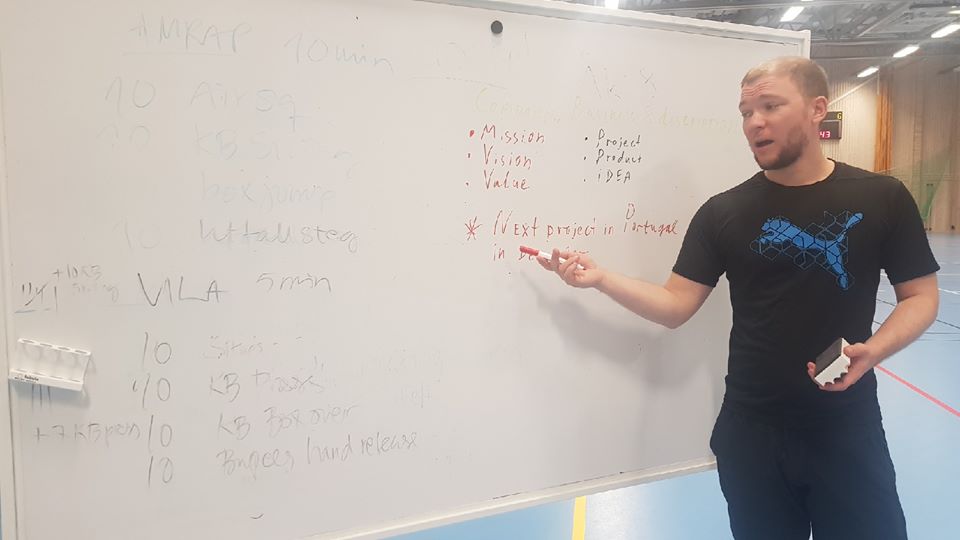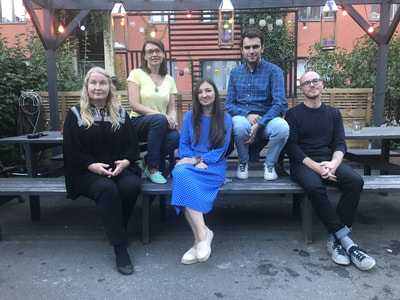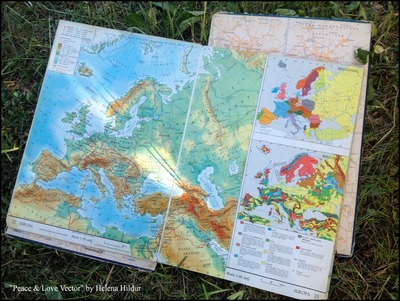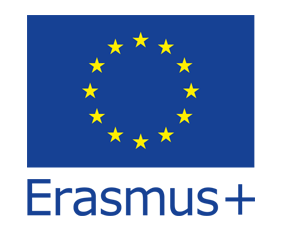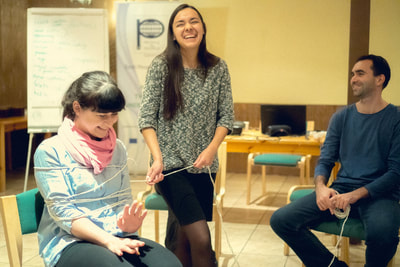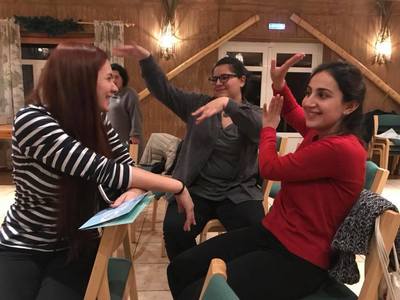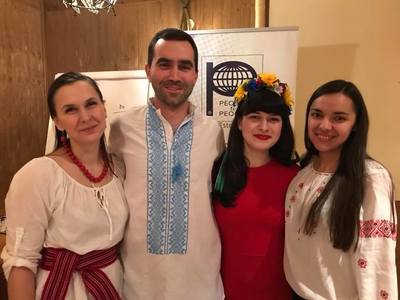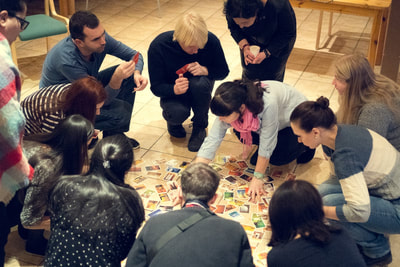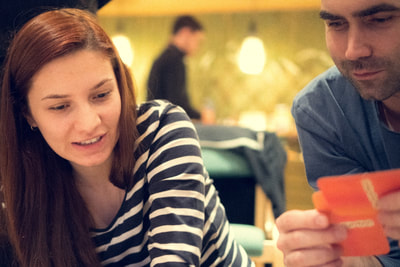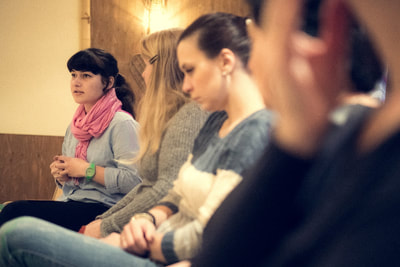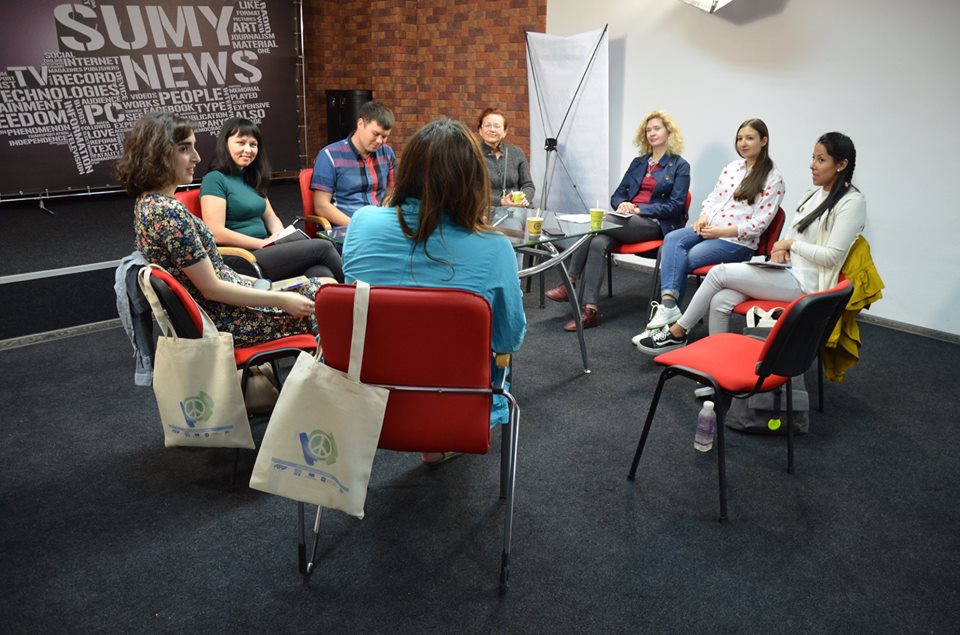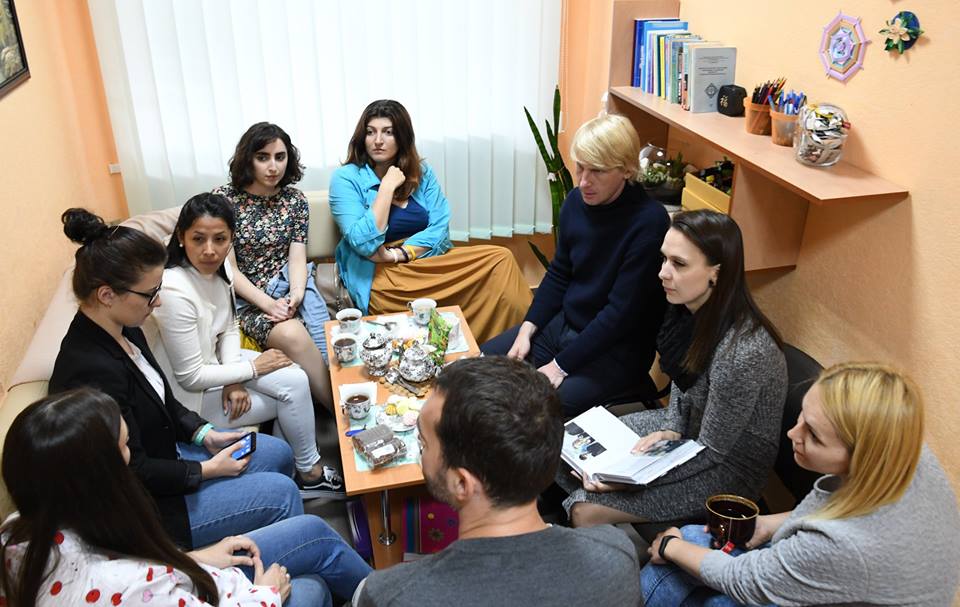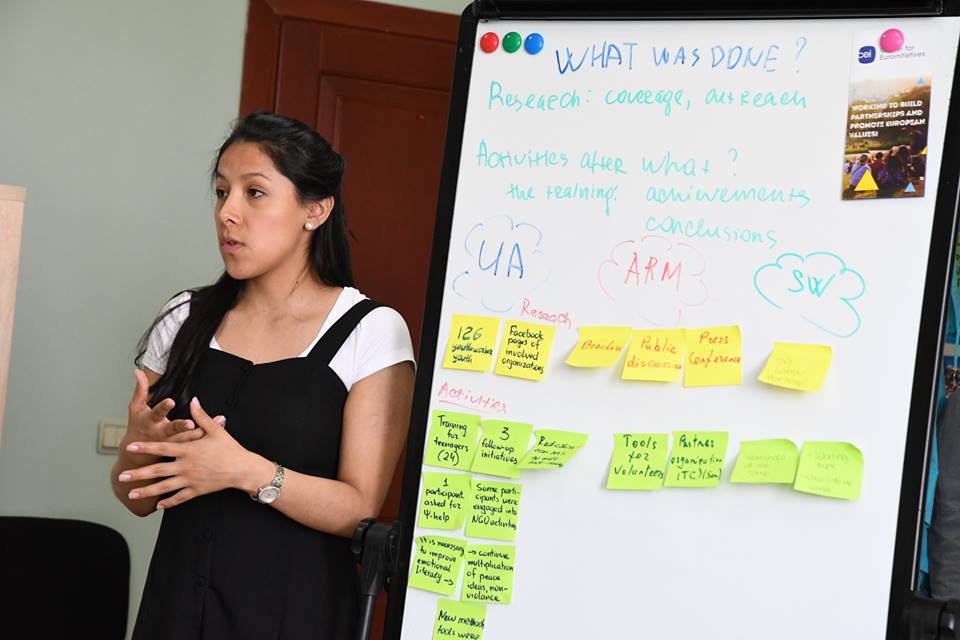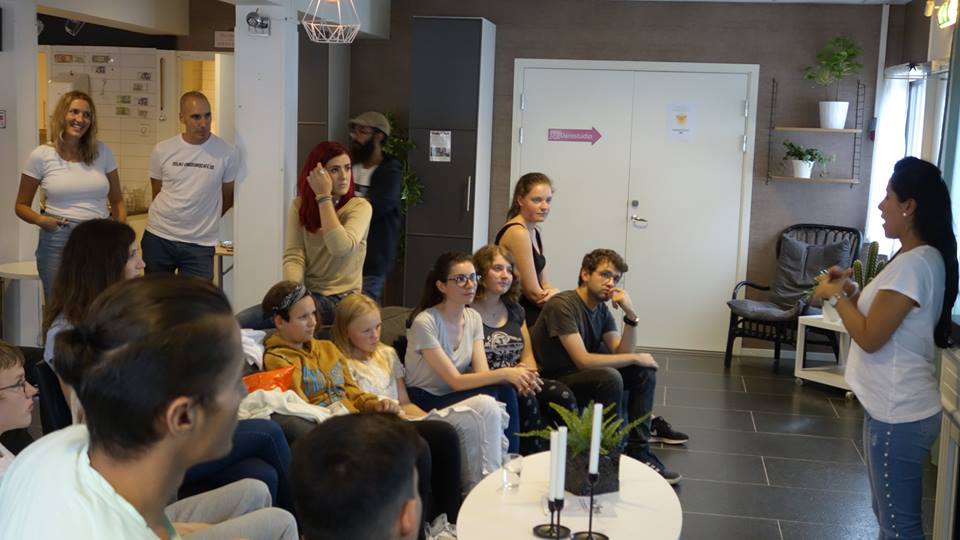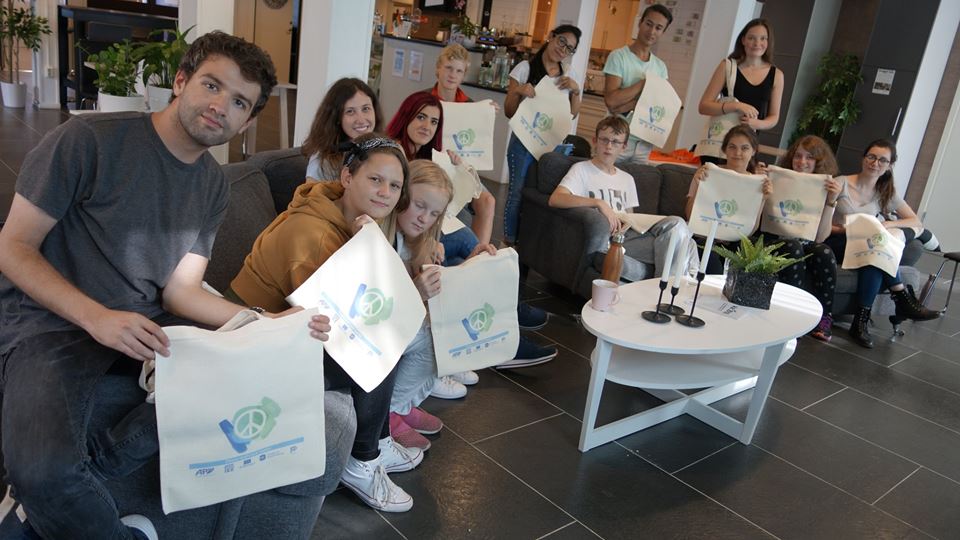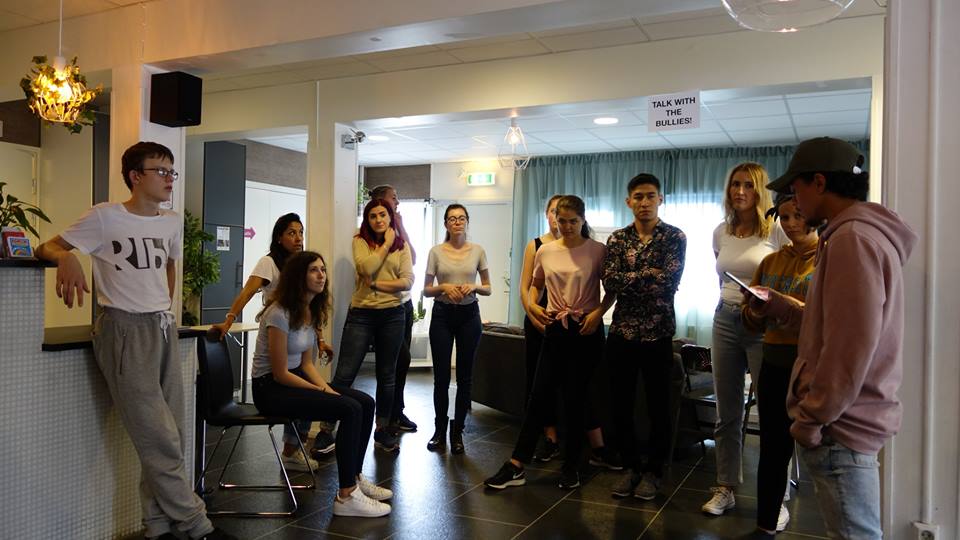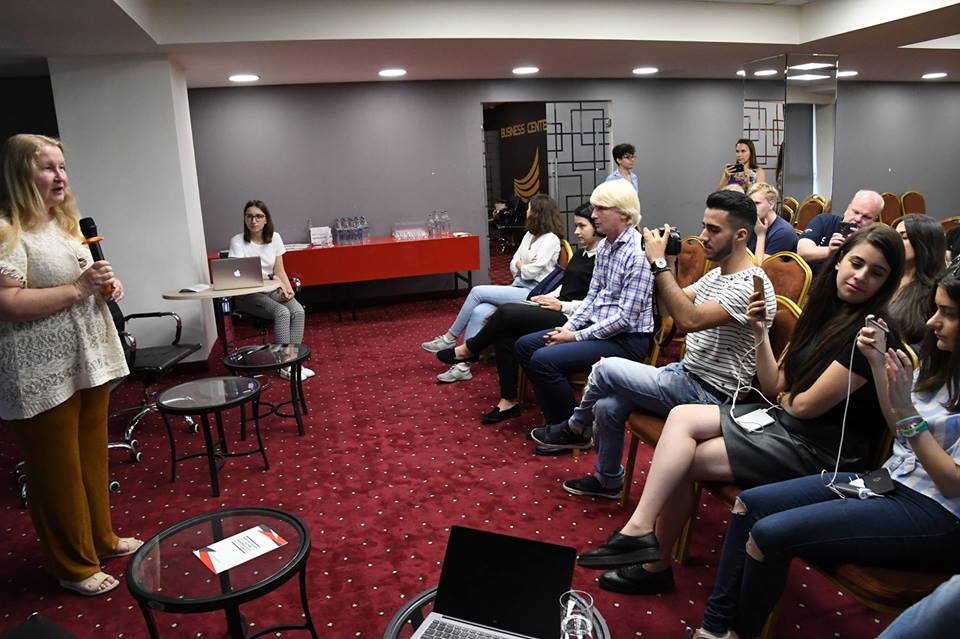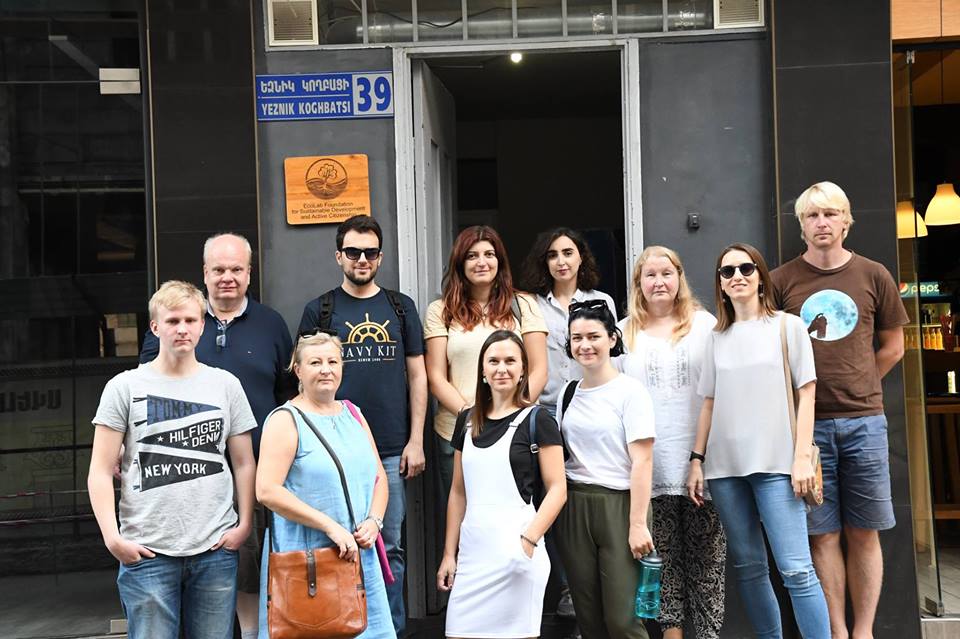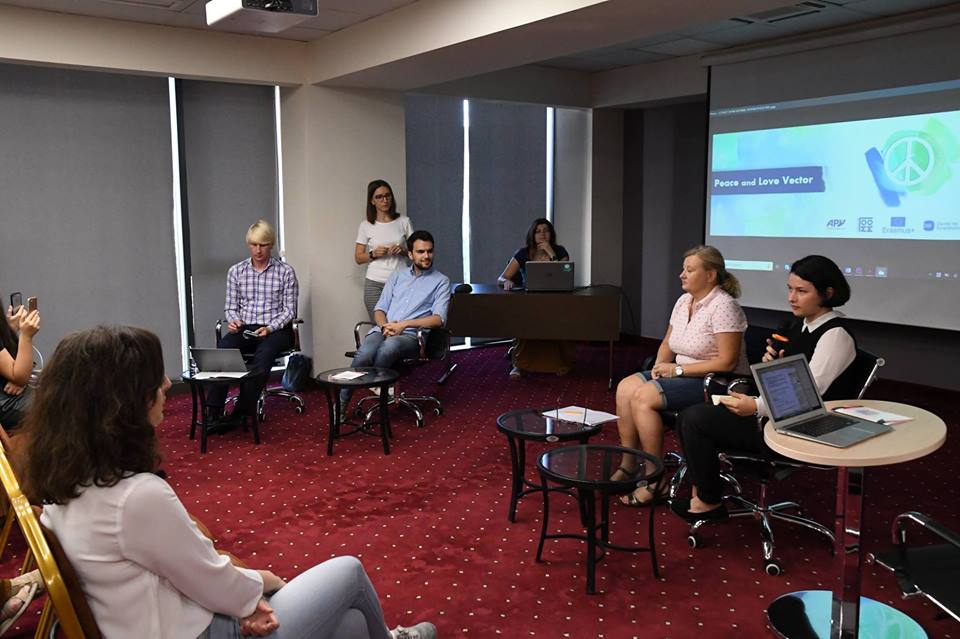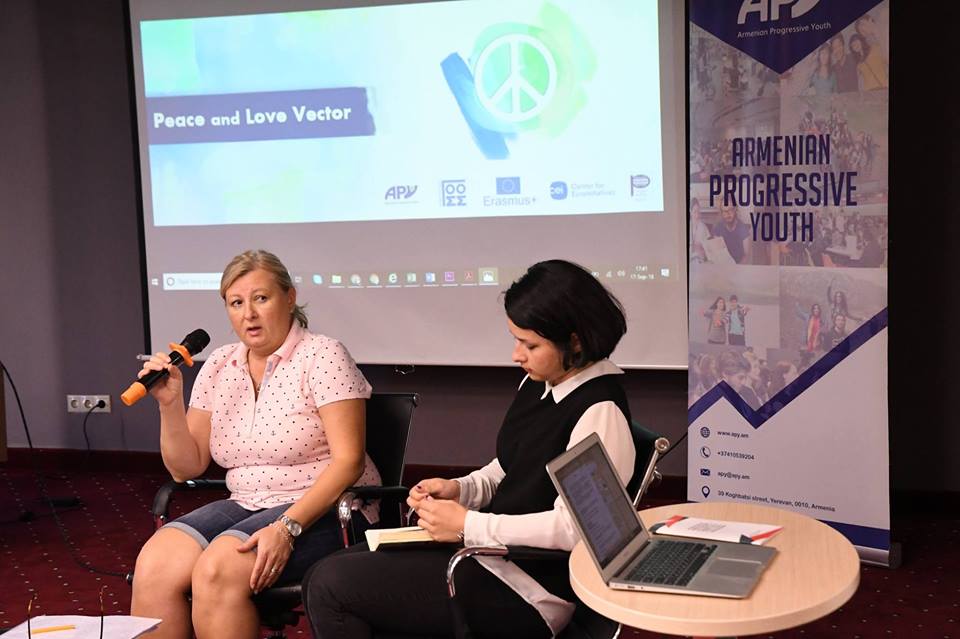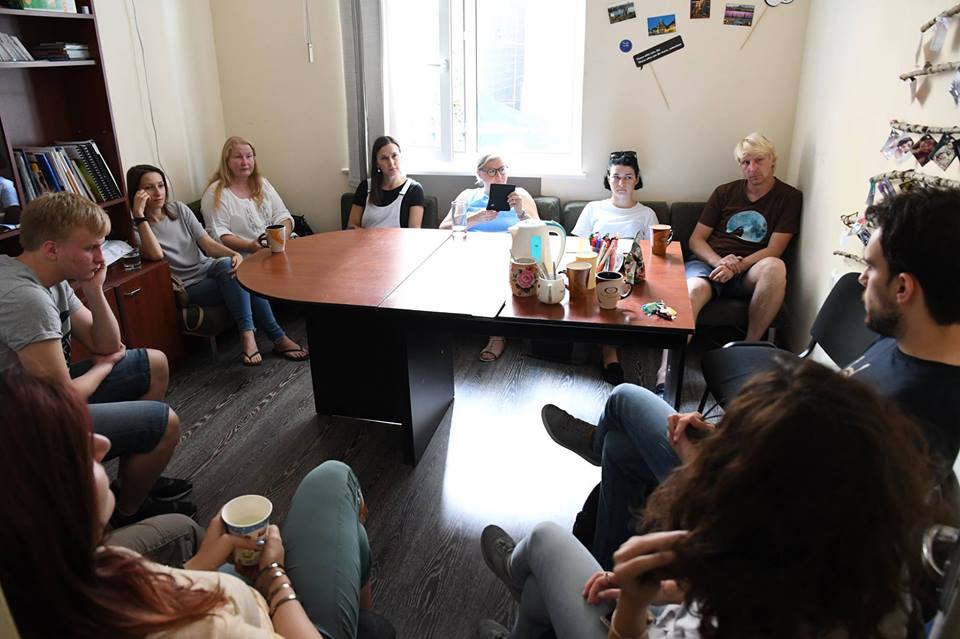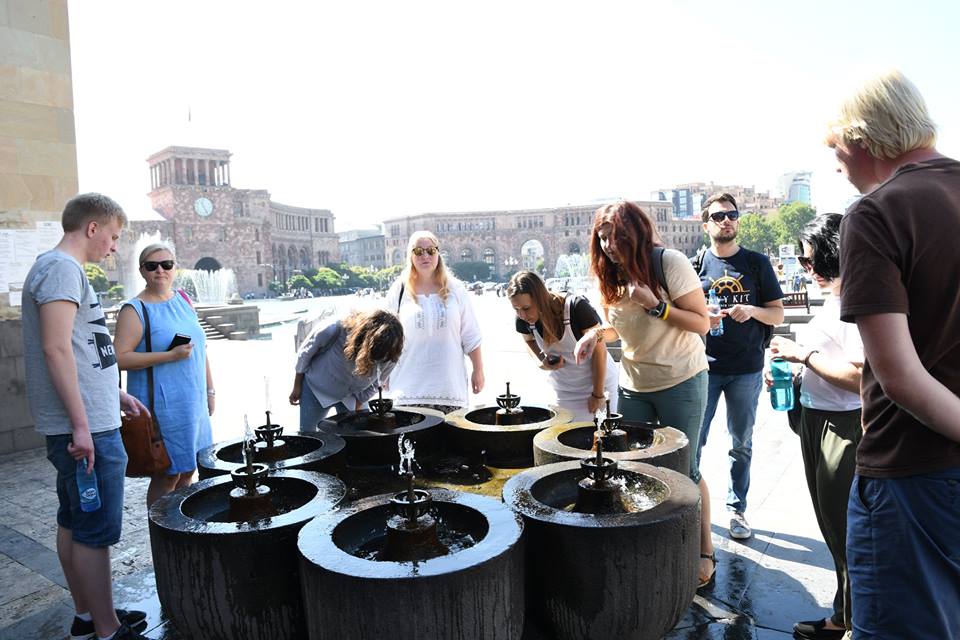Strategic partnership project Digital competencies in cultural heritage for older students: SEED4OS
2023-2024
2023-2024
Digital learning, sharing and volunteering programmes orientated to seniors will let to share their wisdom and empower them to begin with digital volunteering. These positive social relations created a context that gave the chance to the seniors to further embrace the learning opportunity.
Objectives of the project are:
- improve and expand the offers of high-quality learning opportunities for older adult students
- promote the development of volunteer skills among people of the third age
- bring knowledge and networks of European Cultural Heritage to students Seniors
- support the elderly in non-formal education activities
- introduce seniors to digital meetings and initiate digital learning pathways interconnecting European Cultural Heritage
networks
- promote Erasmus+ that offer education and exchange activities experiences for the elderly, with a view to (re)building and adding solidity to the European identity.
The strategic partnership project " Digital competencies in cultural heritage for older students: Planting the evidence for our future" will be carried out transnationally in order to achieve the following goals: to encourage seniors active participation in volunteering activities as one of non-formal learning form; to compare and transfer the effective methods among the partners; to increase the cooperation among the partner countries by sharing experience of various organisations and using cross-sectoral cooperation. It will use the experience from Spain, Poland, Netherlands and Sweden.
Strategic partnership project Digital competencies in cultural heritage for older students: SEED4OS is coordinated by Universidad Católica de Ávila within Erasmus+ programme. 2022-1-ES01- KA220-ADU-000088647
Objectives of the project are:
- improve and expand the offers of high-quality learning opportunities for older adult students
- promote the development of volunteer skills among people of the third age
- bring knowledge and networks of European Cultural Heritage to students Seniors
- support the elderly in non-formal education activities
- introduce seniors to digital meetings and initiate digital learning pathways interconnecting European Cultural Heritage
networks
- promote Erasmus+ that offer education and exchange activities experiences for the elderly, with a view to (re)building and adding solidity to the European identity.
The strategic partnership project " Digital competencies in cultural heritage for older students: Planting the evidence for our future" will be carried out transnationally in order to achieve the following goals: to encourage seniors active participation in volunteering activities as one of non-formal learning form; to compare and transfer the effective methods among the partners; to increase the cooperation among the partner countries by sharing experience of various organisations and using cross-sectoral cooperation. It will use the experience from Spain, Poland, Netherlands and Sweden.
Strategic partnership project Digital competencies in cultural heritage for older students: SEED4OS is coordinated by Universidad Católica de Ávila within Erasmus+ programme. 2022-1-ES01- KA220-ADU-000088647
Strategic partnership project Empowering adult educators to support resilience of refugees
2023-2024
2023-2024
Russia’s war against Ukraine has generated a massive outflow of people fleeing the war zone. The European Union has taken all possible measures to facilitate the entry and stay of Ukrainian refugees. The solidarity with Ukraine is immense, but real challenges remain in ensuring that refugees receive the support they need most. Refugees from war zones need not only accommodation, food, access to education and the job market. They also need mental health support. However, we do not always have enough qualified specialists, and it’s not possible to train them in such a short period of time.
To address these challenges, the partners from the Netherlands and Sweden will cooperate to develop an online course to increase the psychological literacy of social workers and adult educators who are currently working with refugees. This course will help them gain basic skills and competences in the fields of psychological trauma, stress and grief. The project also aims at developing a program of psychological rehabilitation focused on self-help sessions in which refugees will be enabled to share their painful war experiences in a safe environment, co-develop their coping strategies and increase their mental strength and resilience.
Target groups: refugees from the war zones and adult educators working with them.
We are interested in exchanging ideas and sharing best practices with organizations and volunteers working with refugees from war zones. Let's join our forces in building the resilience of refugees and helping them to overcome war trauma.
Contact details:
Bezinger Psy Consulting, the Netherlands: https://www.anna-bezinger.com/nl/
bezinger.a(at)gmail.com
FENAN Consulting, the Netherlands: fenan.consulting(at)gmail.com
More Mosaic, Sweden: www.moremosaic.eu/, projects(at)moremosaic.eu
The strategic partnership project ‘’Empowering adult educators to support resilience of refugees’’ is coordinated by Bezinger Psy Consulting, (NL) within Erasmus+ programme. 2022-2-NL01-KA210-ADU-000095469.
To address these challenges, the partners from the Netherlands and Sweden will cooperate to develop an online course to increase the psychological literacy of social workers and adult educators who are currently working with refugees. This course will help them gain basic skills and competences in the fields of psychological trauma, stress and grief. The project also aims at developing a program of psychological rehabilitation focused on self-help sessions in which refugees will be enabled to share their painful war experiences in a safe environment, co-develop their coping strategies and increase their mental strength and resilience.
Target groups: refugees from the war zones and adult educators working with them.
We are interested in exchanging ideas and sharing best practices with organizations and volunteers working with refugees from war zones. Let's join our forces in building the resilience of refugees and helping them to overcome war trauma.
Contact details:
Bezinger Psy Consulting, the Netherlands: https://www.anna-bezinger.com/nl/
bezinger.a(at)gmail.com
FENAN Consulting, the Netherlands: fenan.consulting(at)gmail.com
More Mosaic, Sweden: www.moremosaic.eu/, projects(at)moremosaic.eu
The strategic partnership project ‘’Empowering adult educators to support resilience of refugees’’ is coordinated by Bezinger Psy Consulting, (NL) within Erasmus+ programme. 2022-2-NL01-KA210-ADU-000095469.
Strategic partnership project Laboratory of New Migratory Narratives
2022-2023
2022-2023
Partners of the project Laboratory of New Migratory Narratives conducted an on-line kick-off meeting. MiLAB was born with the objective of generating, through transnational cooperation, new migration narratives that promote the positive aspects of migration and the contributions that migrants and refugees have made to European societies.
Thus, the sub-objectives of the project are:
- to train youth workers on how to promote audiovisual literacy and digital narrative skills for the construction of new migratory narratives among young people,
- to empower young people, migrants and indigenous people, to generate their own migration narratives that promote respect for other cultures, acceptance of people from other countries and increase the sense of belonging to the EU through re- discovery of its European cultural heritage,
- to generate intercultural dialogue in the participating communities and promote mutual understanding as ways to combat hate speech and eliminate stereotypes, acts of racism and xenophobia.
Video-interview
1. Narrative audio and Text
2. Narrative audio and Text
Modules of the course
The project is coordinated by FUNDACIÓN ENTRECULTURAS, Spain within Erasmus+ programme.
Thus, the sub-objectives of the project are:
- to train youth workers on how to promote audiovisual literacy and digital narrative skills for the construction of new migratory narratives among young people,
- to empower young people, migrants and indigenous people, to generate their own migration narratives that promote respect for other cultures, acceptance of people from other countries and increase the sense of belonging to the EU through re- discovery of its European cultural heritage,
- to generate intercultural dialogue in the participating communities and promote mutual understanding as ways to combat hate speech and eliminate stereotypes, acts of racism and xenophobia.
Video-interview
1. Narrative audio and Text
2. Narrative audio and Text
Modules of the course
The project is coordinated by FUNDACIÓN ENTRECULTURAS, Spain within Erasmus+ programme.
Strategic partnership project SCHOOL EDUCATION AGAINST CLIMATE CHANGE
2022-2023
2022-2023
The general objective of this project is to generate knowledge on how to promote Youth Goal 10 and SDG 13 in primary education, in order to promote sustainable and responsible environmental behaviors in the new generations of European girls and boys.
Due to all of the above, SEAC also seeks the following sub-objectives:
1. Contribute so that our localities, especially their youngest citizens (girls and boys in school education), know the Youth Goal 10 and SDG 13.
2. To have to our credit, both from the methodological aspect and in our portfolio of services, knowledge and skills to
promote sustainable and responsible environmental behaviors in the new generations of European girls and boys.
3. Provide primary education teaching professionals with two intellectual results that they can use in their day-to-day to raise awareness about climate change and promote green initiatives in their students.
4. Bringing environmental issues closer to its youngest citizens (girls and boys in school education) in a fun, attractive and effective way.
To achieve the objectives, the following actions are proposed:
1. Carry out “peer learning” activities to exchange good practices on which skills and tools are the most appropriate to sensitize and educate girls and boys about climate change. The above will be systematized in a virtual Resource ToolKit
that can be used by primary education teaching professionals.
2. Develop a virtual Educational Game (or online gamification process) that allows them to acquire and develop environmental skills among girls and boys in primary education, as well as motivate them to promote Youth Goal 10 and SDG 13 in their communities / localities. This game can be used by primary education teaching professionals in their classes and daily performances.
Newsletters:
#1
#2
#3
#4
#5
#6
#7
The project is coordinated by BB&R, Spain within Erasmus+ programme.
Strategic partnership project #EUDEFENDERS – Reloading European Cultural Heritage through Digital Storytelling and Media Literacy
2022-2024
2022-2024
Objectives of the project are:
1. Contribute to the promotion and preservation of the European cultural heritage of the four participating countries in the times of Covid-19 through digital storytelling and media literacy among youth.
2. Research, recognise and celebrate the diversity of the cultural heritage of the EU.
3. Design training modules and digital learning tools so that youth workers know how to promote the cultural heritage of the EU in virtual format among youth.
4. Create safe spaces for young people (with and without fewer opportunities) to reflect on their own life histories and show their creative potential (through digital storytelling and media literacy).
5. Foster a creative and innovative discourse in times of Covid-19.
The project's consortium will develop INTELLECTUAL OUTPUTS:
1."#EUDefender ToolKit”:
- it will provide knowledge about European cultural heritage and cultural education in the youth field;
- it will provide training modules and learning tools on how to promote digital storytelling and media literacy in youth and within the framework of European cultural heritage,
2."#EUDefender Digital Magazine”:
- it will create a space for the young participants to publish their digital narratives (podcasts, audiovisual capsules, photographic exhibitions) on the cultural heritage of their communities;
- it will provide a space so that micro-enterprises, non-profit organizations and autonomous professionals from the cultural/creative sectors can make their work known;
- it will become an interactive map of the cultural heritage of the four participating countries that will allow it to be promoted and positioned both in these countries as throughout the EU (in times of Covid-19).
Podcast#1
Podcast#2
Podcast#3
The project is coordinated by Pontifical University of Salamanca, Spain within Erasmus+ programme.
1. Contribute to the promotion and preservation of the European cultural heritage of the four participating countries in the times of Covid-19 through digital storytelling and media literacy among youth.
2. Research, recognise and celebrate the diversity of the cultural heritage of the EU.
3. Design training modules and digital learning tools so that youth workers know how to promote the cultural heritage of the EU in virtual format among youth.
4. Create safe spaces for young people (with and without fewer opportunities) to reflect on their own life histories and show their creative potential (through digital storytelling and media literacy).
5. Foster a creative and innovative discourse in times of Covid-19.
The project's consortium will develop INTELLECTUAL OUTPUTS:
1."#EUDefender ToolKit”:
- it will provide knowledge about European cultural heritage and cultural education in the youth field;
- it will provide training modules and learning tools on how to promote digital storytelling and media literacy in youth and within the framework of European cultural heritage,
2."#EUDefender Digital Magazine”:
- it will create a space for the young participants to publish their digital narratives (podcasts, audiovisual capsules, photographic exhibitions) on the cultural heritage of their communities;
- it will provide a space so that micro-enterprises, non-profit organizations and autonomous professionals from the cultural/creative sectors can make their work known;
- it will become an interactive map of the cultural heritage of the four participating countries that will allow it to be promoted and positioned both in these countries as throughout the EU (in times of Covid-19).
Podcast#1
Podcast#2
Podcast#3
The project is coordinated by Pontifical University of Salamanca, Spain within Erasmus+ programme.
Strategic partnership project EXCHANGE OF GOOD PRACTICES FOR PROMOTING VIRTUAL EDUCATION AMONG ADULT PEOPLE THROUGH ELECTRONIC PLATFORMS – ‘eAdults’
2021-2022
2021-2022
Project Reference: 2020-1-ES01-KA204-082163
The general objective of the project is to generate evidence about the most effective platforms and methods to successfully promote virtual education in adults.
The specific objectives consist of analysing the variables that make electronic platforms ideal for adult education, identifying which characteristics make up current platforms, evaluating the effectiveness of these platforms and creating a practical guide with all the information that is gathered.
Handbook in English
Handbook in Swedish
The final result of the project is a handbook of good practices to promote virtual education among adults, that consist of an educational catalogue and a recommendations guide.
The project is coordinated by the Chamber of Commerce of Peru in Spain in cooperation with other partners and co-funded by the Erasmus+ Programme of the European Union.
The general objective of the project is to generate evidence about the most effective platforms and methods to successfully promote virtual education in adults.
The specific objectives consist of analysing the variables that make electronic platforms ideal for adult education, identifying which characteristics make up current platforms, evaluating the effectiveness of these platforms and creating a practical guide with all the information that is gathered.
Handbook in English
Handbook in Swedish
The final result of the project is a handbook of good practices to promote virtual education among adults, that consist of an educational catalogue and a recommendations guide.
The project is coordinated by the Chamber of Commerce of Peru in Spain in cooperation with other partners and co-funded by the Erasmus+ Programme of the European Union.
Strategic partnership project SOCIAL INCLUSION EDUCATIONAL PILLS AND
GAMIFICATION - SIEP 2.0
2021-2023
GAMIFICATION - SIEP 2.0
2021-2023
Project Reference: 621487-EPP-1-2020-1-ES-EPPKA3-IPI-SOC-IN
The SIEP 2.0 project aims to counteract bullying and cyberbullying that, unfortunately, are becoming more present in the daily life of teenagers and young Europeans, in general, especially in those who have any disability or have fewer opportunities among their peers, in particular.
In order to achieve the aforementioned, this initiative will focus on expanding two of our best practices about inclusive education and promoting common values.
1. “Put yourself in my Shoes” was incepted in Valladolid (España) and promotes the normalization of disability among young people.
2. “SIEP” was incepted in Valladolid (España), Salamanca (España) and Santa Maria da Feira (Portugal), and utilizes the theatre of the oppressed and educational pills to fight against bullying and cyberbullying among young people.
The project is coordinated by Fundación Aspaym Castilla y León, Spain in cooperation with other partners and co-funded by the Erasmus+ Programme of the European Union.
The SIEP 2.0 project aims to counteract bullying and cyberbullying that, unfortunately, are becoming more present in the daily life of teenagers and young Europeans, in general, especially in those who have any disability or have fewer opportunities among their peers, in particular.
In order to achieve the aforementioned, this initiative will focus on expanding two of our best practices about inclusive education and promoting common values.
1. “Put yourself in my Shoes” was incepted in Valladolid (España) and promotes the normalization of disability among young people.
2. “SIEP” was incepted in Valladolid (España), Salamanca (España) and Santa Maria da Feira (Portugal), and utilizes the theatre of the oppressed and educational pills to fight against bullying and cyberbullying among young people.
The project is coordinated by Fundación Aspaym Castilla y León, Spain in cooperation with other partners and co-funded by the Erasmus+ Programme of the European Union.
Strategic Partnership Project “Empowering migrant women through building entrepreneurship skills” Like us on Facebook!
2020-2022
2020-2022
Cooperation for innovation and the exchange of good practices
Project Reference: 2020-1-NL01-KA204-064642
Encouragement of migrant women's entrepreneurship skills is one of the easiest way to create job for themselves, but the courses are mostly focused on language skills and education. Migrant women need support in their integration in the labor market.
Three partners from Sweden, Italy and the Netherlands initiated and conducted Erasmus+ Strategic partnership project “Empowering migrant women through building entrepreneurship skills”. The project was focused on developing migrant women competencies and their successful integration into socio-economic life.
Objectives of the project were:
– To improve employability, social integration and civic engagement of migrant women through development of entrepreneurship competencies;
– To encourage social integration of migrant women through social participation and mentoring.
Direct target groups were:
– migrant women (especially the most vulnerable groups: non-Western migrant women and migrant women with a low educational level),
– adult educators working with migrant women.
Intellectual outputs included the following:
– Migrant women mentoring program in English HERE and in Swedish HERE
The program aimed to share experiences of successful female migrants with newcomers and to encourage their integration and social participation by providing aspirational role models, practical advice and psychological support,
– MOOC “Migrant women integration in labor market” aimed to improve professional skills for migrant women, increase their participation in the activities leading to employment and building key competences necessary for successful economic integration in the host society HERE and promotion VIDEO
– Handbook for social workers and adult educators working with migrant women aimed to tailor their programs to the educational and professional goals of migrant women in English HERE and in Swedish HERE
The European Commission’s support for the production of this publication does not constitute an endorsement of the contents, which reflect the views only of the authors, and the Commission cannot be held responsible for any use which may be made of the information contained therein.
The project was coordinated by S.A.F.E.Projects, the Netherlands in cooperation with other partners and co-funded by the Erasmus+ Programme of the European Union.
Project Reference: 2020-1-NL01-KA204-064642
Encouragement of migrant women's entrepreneurship skills is one of the easiest way to create job for themselves, but the courses are mostly focused on language skills and education. Migrant women need support in their integration in the labor market.
Three partners from Sweden, Italy and the Netherlands initiated and conducted Erasmus+ Strategic partnership project “Empowering migrant women through building entrepreneurship skills”. The project was focused on developing migrant women competencies and their successful integration into socio-economic life.
Objectives of the project were:
– To improve employability, social integration and civic engagement of migrant women through development of entrepreneurship competencies;
– To encourage social integration of migrant women through social participation and mentoring.
Direct target groups were:
– migrant women (especially the most vulnerable groups: non-Western migrant women and migrant women with a low educational level),
– adult educators working with migrant women.
Intellectual outputs included the following:
– Migrant women mentoring program in English HERE and in Swedish HERE
The program aimed to share experiences of successful female migrants with newcomers and to encourage their integration and social participation by providing aspirational role models, practical advice and psychological support,
– MOOC “Migrant women integration in labor market” aimed to improve professional skills for migrant women, increase their participation in the activities leading to employment and building key competences necessary for successful economic integration in the host society HERE and promotion VIDEO
– Handbook for social workers and adult educators working with migrant women aimed to tailor their programs to the educational and professional goals of migrant women in English HERE and in Swedish HERE
The European Commission’s support for the production of this publication does not constitute an endorsement of the contents, which reflect the views only of the authors, and the Commission cannot be held responsible for any use which may be made of the information contained therein.
The project was coordinated by S.A.F.E.Projects, the Netherlands in cooperation with other partners and co-funded by the Erasmus+ Programme of the European Union.
Strategic Partnership Project in the field of youth ''Urban Garden 2.0''
2020-2021
2020-2021
Cooperation for innovation and the exchange of good practices
Project Reference: 2020-2-HU01-KA205- 078917
2020 is the beginning of a new decade towards the European Green Deal strategy and it should be followed by real actions focused on environmental issues. It is a promising initiative but a lot remains to be urgently done on the short-term. We have to constantly remind us that environmental goals are nothing permanent to achieve and forget about, but must be constantly present in our economic, political and social agenda both on national and personal levels. Youth has to be more ambitious in order to take actions to implement innovative approaches, take care and contribute to sustainable future. In circular economy we have to inspire and teach youth to live in sustainability and harmony with our environment on a local and global levels.
Strategic Partnership ‘Urban Garden 2.0’ is a cooperation between the youth organisations from Hungary, Italy, Poland, the Netherlands and Sweden.
Partners of this project agreed that youth in general, youth leaders, workers and representatives of civil society have to play an important role in European Green Deal implementation and their potential has to be strengthened.
The project’s specific aims are:
- to raise awareness about youth urban gardening and environmental challenges and climate-change;
- to develop competences needed for a sustainable approach to life among youth;
- to develop methodology for acquiring urban gardening skills;
- to test innovative practice from the project’s countries by implementing them in the base of the project ‘’green platform’’;
- to develop a youth urban gardening platform that meet current needs of youth, youth workers and youth leaders (e.g. save resources, grow green, opt for sustainable food and mobility choices);
- to strengthen young people's sense of initiative, notably in the social field and to support their communities giving instrument to start a new step from Protest to Action.
The project’s elements:
1. Three management meetings: a kick-off meeting – on-line, a mid-term meeting in Hungary, an evaluation meeting – on-line.
2. Development of two intellectual outputs:
1) Youth urban gardening concept DOWNLOAD
2) Youth urban gardening platform DOWNLOAD
3. Four multiplier events (in Sweden, Netherlands, Hungary, Italy).
Main participants of the project activities will be youth members of the partners' organisations, youth workers and leaders, volunteers who work with youth on daily base and use non- formal education methods, who are active in the topics of the project as well youth with migrant/refugee background.
The project is coordinated by Csermely Környezetvédelmi Egyesület, Hungary in cooperation with other partners and co-funded by the Erasmus+ Programme of the European Union.
Project Reference: 2020-2-HU01-KA205- 078917
2020 is the beginning of a new decade towards the European Green Deal strategy and it should be followed by real actions focused on environmental issues. It is a promising initiative but a lot remains to be urgently done on the short-term. We have to constantly remind us that environmental goals are nothing permanent to achieve and forget about, but must be constantly present in our economic, political and social agenda both on national and personal levels. Youth has to be more ambitious in order to take actions to implement innovative approaches, take care and contribute to sustainable future. In circular economy we have to inspire and teach youth to live in sustainability and harmony with our environment on a local and global levels.
Strategic Partnership ‘Urban Garden 2.0’ is a cooperation between the youth organisations from Hungary, Italy, Poland, the Netherlands and Sweden.
Partners of this project agreed that youth in general, youth leaders, workers and representatives of civil society have to play an important role in European Green Deal implementation and their potential has to be strengthened.
The project’s specific aims are:
- to raise awareness about youth urban gardening and environmental challenges and climate-change;
- to develop competences needed for a sustainable approach to life among youth;
- to develop methodology for acquiring urban gardening skills;
- to test innovative practice from the project’s countries by implementing them in the base of the project ‘’green platform’’;
- to develop a youth urban gardening platform that meet current needs of youth, youth workers and youth leaders (e.g. save resources, grow green, opt for sustainable food and mobility choices);
- to strengthen young people's sense of initiative, notably in the social field and to support their communities giving instrument to start a new step from Protest to Action.
The project’s elements:
1. Three management meetings: a kick-off meeting – on-line, a mid-term meeting in Hungary, an evaluation meeting – on-line.
2. Development of two intellectual outputs:
1) Youth urban gardening concept DOWNLOAD
2) Youth urban gardening platform DOWNLOAD
3. Four multiplier events (in Sweden, Netherlands, Hungary, Italy).
Main participants of the project activities will be youth members of the partners' organisations, youth workers and leaders, volunteers who work with youth on daily base and use non- formal education methods, who are active in the topics of the project as well youth with migrant/refugee background.
The project is coordinated by Csermely Környezetvédelmi Egyesület, Hungary in cooperation with other partners and co-funded by the Erasmus+ Programme of the European Union.
Strategic Partnerships for adult education – Sustainable Attitude For Environment in Adult Education 2019-2021
Cooperation for innovation and the exchange of good practices
Start: 01-09-2019 - End: 31-08-2021
Project Reference: 2019-1-LT01-KA204-060634
Countries involved in the project are: Lithuania, Latvia, Netherlands, Estonia, Slovakia and Sweden.
Adult education creates social change through enhancing social, economical, ecological prospects, improving sustainable attitude for environment in adult education and acquire the tools. Adult educators is key for achieving social change in the world. Within the Europe 2020 strategy for smart, sustainable and inclusive growth, the Commission called for a renewed European Agenda for Adult Learning where quality education and training, equity, and social cohesion become a widespread reality. This project is innovative and offers concrete suggestions on how to work and focus adult educators to the Sustainable Development Goals (SDG) implementation.
This project is innovative because it focusses on systemic approach for adult educators competencies which are based on sustainability in a broad of sense. Innovation of the project lies in development of practical material relevant for promoting sustainable attitude towards environment. Adult educators identify lack of systemic approach for SDG's development in Europe working in non-formal adult education field. There are mentioned policy mechanisms and different declarative documents but systemic implementation guidance and daily working manuals to reach local, national, European and worldwide context for adult educators (AE) are missing. Existing lack of concrete systemic manuals for AE to work in SD goals topic with adults in daily life shows relevance and innovation aspect of this project.
Project aims to extend and develop competencies for adults educators (AE) and staff who support adults in sustainability in a broad sense of challenges of environment and climate changes with a focus on less consumption, zero-waste movement, healthy lifestyle, influence of physical activity on the physical and mental health and quality of life, active citizenship.
More specific objectives of this project are:
1. To prepare manual for adult educators based on SDGs which includes, among others, skills to lead a healthier life, knowledge about equitable and sustainable consumption, the promotion of gender equality, awareness about environmentally friendly transport and energy efficiency, as well as the promotion of sustainable, inclusive economic growth.
2. To provide material for adults learners.aimed to raise their awareness on sustainable development ideas.
Intellectual Outputs relevant and it provides opportunities for adults educators to improve, strengthen their competencies in sustainability topic. Adult educators daily work with adults in this topic will ensure development of our common quality of life and thus give social, economic and ecological benefits to the participating countries. It is expected that the program participants will begin a deeper interest in one of the sustainable issues and in the future it will encourage them to active citizenship.
There will be four main results – intellectual outputs of the project:
1. S.A.F.E (Sustainable Attitude For Environment) case study in adult education
Read CASE STUDY here
2. S.A.F.E manual for adult educators - Read the Manual here
3. S.A.F.E material for adults here and CARDS for printing
4. Toolkit for Participatory photography S.A.F.E here and web-gallery
The project is coordinated by Non-formal learning club “WE” (Lithuania) in cooperation with other partners and co-funded by the Erasmus+ Programme of the European Union.
Start: 01-09-2019 - End: 31-08-2021
Project Reference: 2019-1-LT01-KA204-060634
Countries involved in the project are: Lithuania, Latvia, Netherlands, Estonia, Slovakia and Sweden.
Adult education creates social change through enhancing social, economical, ecological prospects, improving sustainable attitude for environment in adult education and acquire the tools. Adult educators is key for achieving social change in the world. Within the Europe 2020 strategy for smart, sustainable and inclusive growth, the Commission called for a renewed European Agenda for Adult Learning where quality education and training, equity, and social cohesion become a widespread reality. This project is innovative and offers concrete suggestions on how to work and focus adult educators to the Sustainable Development Goals (SDG) implementation.
This project is innovative because it focusses on systemic approach for adult educators competencies which are based on sustainability in a broad of sense. Innovation of the project lies in development of practical material relevant for promoting sustainable attitude towards environment. Adult educators identify lack of systemic approach for SDG's development in Europe working in non-formal adult education field. There are mentioned policy mechanisms and different declarative documents but systemic implementation guidance and daily working manuals to reach local, national, European and worldwide context for adult educators (AE) are missing. Existing lack of concrete systemic manuals for AE to work in SD goals topic with adults in daily life shows relevance and innovation aspect of this project.
Project aims to extend and develop competencies for adults educators (AE) and staff who support adults in sustainability in a broad sense of challenges of environment and climate changes with a focus on less consumption, zero-waste movement, healthy lifestyle, influence of physical activity on the physical and mental health and quality of life, active citizenship.
More specific objectives of this project are:
1. To prepare manual for adult educators based on SDGs which includes, among others, skills to lead a healthier life, knowledge about equitable and sustainable consumption, the promotion of gender equality, awareness about environmentally friendly transport and energy efficiency, as well as the promotion of sustainable, inclusive economic growth.
2. To provide material for adults learners.aimed to raise their awareness on sustainable development ideas.
Intellectual Outputs relevant and it provides opportunities for adults educators to improve, strengthen their competencies in sustainability topic. Adult educators daily work with adults in this topic will ensure development of our common quality of life and thus give social, economic and ecological benefits to the participating countries. It is expected that the program participants will begin a deeper interest in one of the sustainable issues and in the future it will encourage them to active citizenship.
There will be four main results – intellectual outputs of the project:
1. S.A.F.E (Sustainable Attitude For Environment) case study in adult education
Read CASE STUDY here
2. S.A.F.E manual for adult educators - Read the Manual here
3. S.A.F.E material for adults here and CARDS for printing
4. Toolkit for Participatory photography S.A.F.E here and web-gallery
The project is coordinated by Non-formal learning club “WE” (Lithuania) in cooperation with other partners and co-funded by the Erasmus+ Programme of the European Union.
Strategic partnership project 'Volunteers4Europe' 2018-2020 - Like us on Facebook!
Volunteer work is closely linked with social, civic and intercultural competences, with critical thinking and with the fight against discrimination, segregation, racism and violence. Volunteer work has an economic value, increases social well-being and social prosperity. Lots of volunteers life the European values and stand for it. They are active citizens and contribute to the civil society in Europe. Democracies thrive from the engagement of their citizens, their readiness to help in society, to feel a part of it and to take over responsibility. With other words: Democracies need volunteers!
In 2011 the European Year of Volunteering was designated. Since then the number of volunteers grew up, but by far not as much as expected. There are remarkable differences of volunteering between the European countries, influenced by their tradition, politics and history. Statistical data about volunteering are different in the European countries and often not sufficient to reflect the real situation. There exist already European programmes like the European Voluntary Service that provide opportunities for volunteering for young people. Nevertheless, transnational exchange, promotion and education campaigns are needed in Europe in order to raise awareness among persons of all ages, organisations and companies for voluntary activities and its great benefits. It is the main objective of the project to get a picture of the current situation of the voluntary sector on local and regional level and to introduce examples of best practice to a larger audience on national and transnational level.
International exchange will open possibilities for new perspectives. Informative and human resources will be generated through the developed initiatives and partnerships with different stakeholders on the local, national and international levels.
Learn more about the project http://www.volunteers4europe.eu/
The project is coordinated by European Photoacademy Rastatt (Germany) in cooperation with other partners and co-funded by the Erasmus+ Programme of the European Union.
In 2011 the European Year of Volunteering was designated. Since then the number of volunteers grew up, but by far not as much as expected. There are remarkable differences of volunteering between the European countries, influenced by their tradition, politics and history. Statistical data about volunteering are different in the European countries and often not sufficient to reflect the real situation. There exist already European programmes like the European Voluntary Service that provide opportunities for volunteering for young people. Nevertheless, transnational exchange, promotion and education campaigns are needed in Europe in order to raise awareness among persons of all ages, organisations and companies for voluntary activities and its great benefits. It is the main objective of the project to get a picture of the current situation of the voluntary sector on local and regional level and to introduce examples of best practice to a larger audience on national and transnational level.
International exchange will open possibilities for new perspectives. Informative and human resources will be generated through the developed initiatives and partnerships with different stakeholders on the local, national and international levels.
Learn more about the project http://www.volunteers4europe.eu/
The project is coordinated by European Photoacademy Rastatt (Germany) in cooperation with other partners and co-funded by the Erasmus+ Programme of the European Union.
Strategic partnership project E4SPORT+
The expansion of sport as a global business has made the industry one of the most lucrative. The expansion of the business encourages the increase in demand, quality and complexity, limiting the entry to the industry. In general, young people in the sport area are proactive and dynamic in implementation of actions with potential for change. They often come up with ideas for initiatives, however it is rare for them to lead and manage them. As a consequence, the employment situations of young people, especially those at the end of school, are not positive. Although unemployment in this area is low, most young people experience precarious job conditions, with no expectations of improvement and/or career advancement. Thus, it is essential to intervene in this often neglected problematic.
Objectives:
- The sharing of good practices and the dissemination of results in the field of young sports entrepreneurship;
- To promote capacity building of young people for entrepreneurship;
- To promote capacity building for intercultural dialogue, active citizenship and social inclusion;
- To promote the development of culture and participation in multicultural contexts;
- To promote the creation of new businesses/projects with an impact on young employability;
- To promote the training of youth technicians as achieving the objectives of Europe 2020;
- To promote the sharing of ideas and experiences;
- To promote the development of a culture of effectiveness and efficiency, quality and responsibility in the area of sport;
- To promote equity and social inclusion through youth participation with fewer opportunities;
- To promote NFE (non-formal education) as an education/training methodology and the Youthpass as an instrument for the recognition and validation of competences;
- The sharing of good practice in the field of sports and training of young people for the entrepreneurship and for the creation of entrepreneurial projects in the sports field.
The project is implemented by Apogesd and co-funded by the Erasmus+ Programme of the European Union.
Objectives:
- The sharing of good practices and the dissemination of results in the field of young sports entrepreneurship;
- To promote capacity building of young people for entrepreneurship;
- To promote capacity building for intercultural dialogue, active citizenship and social inclusion;
- To promote the development of culture and participation in multicultural contexts;
- To promote the creation of new businesses/projects with an impact on young employability;
- To promote the training of youth technicians as achieving the objectives of Europe 2020;
- To promote the sharing of ideas and experiences;
- To promote the development of a culture of effectiveness and efficiency, quality and responsibility in the area of sport;
- To promote equity and social inclusion through youth participation with fewer opportunities;
- To promote NFE (non-formal education) as an education/training methodology and the Youthpass as an instrument for the recognition and validation of competences;
- The sharing of good practice in the field of sports and training of young people for the entrepreneurship and for the creation of entrepreneurial projects in the sports field.
The project is implemented by Apogesd and co-funded by the Erasmus+ Programme of the European Union.
Strategic partnership project ‘Peace&Love Vector’ 2017-2018 - Like us on Facebook!
The project ‘Peace&Love Vector’ represents an ambition to build a metaphorical link across geo-political borders, cultural differences, formal disciplines and imbalance of experience. The aim of the project is empowering of youth leaders and youth workers in the field of preventing extremism and radicalization focusing on young people with migrant background through exchange of practices and experiences between partners' organizations from the EU and the Eastern Partnership countries.
The organizations involved in ‘Peace&Love Vector’ are:
The project includes different layers of local and transnational activities designed to empower youth workers and youth organizations to work closely with young people and promote harmonic, inclusive and tolerant European communities.
Have a look at 'Peace&Love Vector' handbook to get insight into the project activities conducted in Sweden, Armenia, Estonia and Ukraine, get inspiration for your work with youth and use unique educational material and games developed by the project participant during 2017-2018.
The organizations involved in ‘Peace&Love Vector’ are:
- Armenian Progressive Youth (Armenia);
- Eesti People to People (Estonia);
- More Mosaic (Sweden);
- Center for European Initiative (Ukraine).
The project includes different layers of local and transnational activities designed to empower youth workers and youth organizations to work closely with young people and promote harmonic, inclusive and tolerant European communities.
Have a look at 'Peace&Love Vector' handbook to get insight into the project activities conducted in Sweden, Armenia, Estonia and Ukraine, get inspiration for your work with youth and use unique educational material and games developed by the project participant during 2017-2018.
The project includes 3 transnational meetings and 1 training:
1 – Management meeting in Sweden;
2 – Training in Estonia;
3 – Mid-term evaluation meeting in Ukraine;
4 – Evaluation and dissemination meeting in Armenia.
‘Peace&Love Vector’ objectives are to:
1 – Management meeting in Sweden;
2 – Training in Estonia;
3 – Mid-term evaluation meeting in Ukraine;
4 – Evaluation and dissemination meeting in Armenia.
‘Peace&Love Vector’ objectives are to:
- improve and professionalize the cooperation among partner organizations based in the EU and EU-neighboring countries in the area of work with young migrants, IDPs, refugees trying to reduce growing radicalization and extremism among young people;
- foster and improve transnational cooperation through staff and youth workers exchange, through innovation and the exchange of good practices in the area of combating extremism and radicalization against migrants;
- develop a network of stakeholders that are willing to contribute to the migrants, IDPs, refugee's integration processes;
- bring together youth leaders and workers, staff members, project managers, educators in the field of non-formal education from the partner organizations in order to develop new competences;
- increase knowledge of the participants in combating violent extremism and hate speech towards migrants, misinformation about refugees and xenophobic discourse by drawing attention of their local communities to positive contributions of refugees;
- empower youth leaders to become stronger actors for current problematic and to contribute to the resolution of the crisis through influencing local and national policy making;
- establish a working reference group for knowledge and information exchange.
Training course for youth workers in Estonia
December 18-23, 2017, Nelijarve, Estonia
Partner countries: Armenia, Estonia, Sweden and Ukraine.
The aim of the training course was to empower participants to achieve inner peace and learn how to teach and train final beneficiaries – young people in their organisations and communities – to be in balance with inner and outer world. Final target group included young people with fewer opportunities, youth from post-conflicts regions and youth in risk of radicalization and extremism.
December 18-23, 2017, Nelijarve, Estonia
Partner countries: Armenia, Estonia, Sweden and Ukraine.
The aim of the training course was to empower participants to achieve inner peace and learn how to teach and train final beneficiaries – young people in their organisations and communities – to be in balance with inner and outer world. Final target group included young people with fewer opportunities, youth from post-conflicts regions and youth in risk of radicalization and extremism.
Mid-term evaluation meeting
May 2018, Sumy, Ukraine
May 2018, Sumy, Ukraine
Peace&Love Vector Day for Youth
September 2018 at Solna Ungdomscafé, Stockholm, Sweden
September 2018 at Solna Ungdomscafé, Stockholm, Sweden
Evaluation and dissemination meeting
September 2018, Yerevan, Armenia
September 2018, Yerevan, Armenia
The project is implemented by More Mosaic in cooperation with our partners and co-funded by the Erasmus+ Programme of the European Union.
